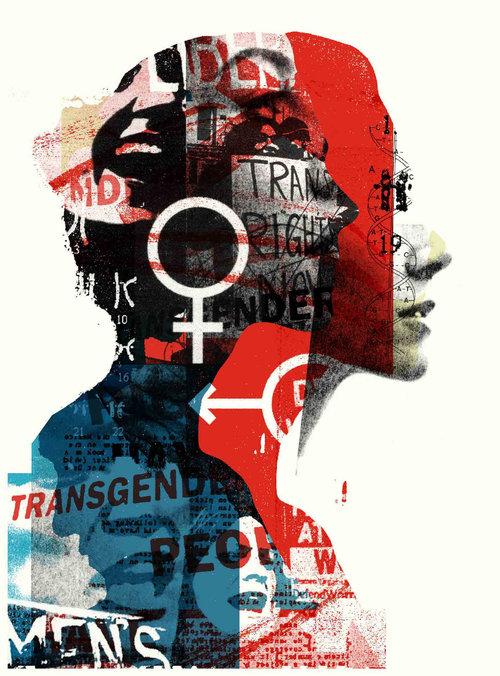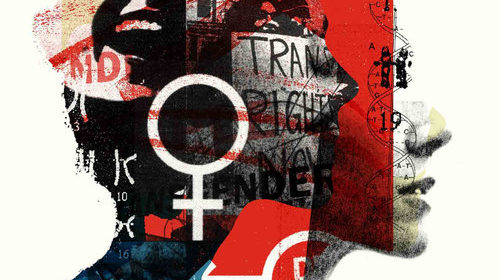
In New York City in April 2020, we are all on a crash course in the art of adapting.
In the new upside down COVID-19 world, New Yorkers living “on pause” try to maintain the essential meaning of our original lives but give those lives new shape and form, on a new platform, within a new structure. However, unlike adaptation in theater-making, we are told to play it safe, stay inside, and keep our connections to a minimum.
I am not a paramedic or a first responder. But I am looking at what I do best as a theater-maker and trying to see these skills as skills for survival for my family and my community reeling from uncertainty. Even if we still have our health, the bottom has dropped out of our theater-world and our city. And while all of us in the theater are well-accustomed to instability and lack of security, the current crisis asks us to adapt in ways most Americans have never had to face.
Creating an adaptation is like giving birth to a new life, one that inspires you on the page to make something three-dimensional in the world. Transforming a line of prose, an interior thought, a dream, a yearning, a passion of a fictional character into dance, into dynamic visuals language — this has been my life’s work for decades. I usually do it in a room, collaboratively, with actors, playwrights, composers, and designers. That transaction — that transformation — is the caffeine that drives my life. Every moment of discovery in rehearsal, every moment of watching those discoveries evolve on stage shows that humanity in its ripest, rawest form. With joy, I get to witness, over and over again, in sensory form, the life force I first saw in that character on the page, yearning for expression.
Lately, I have been building those imaginary worlds off interviews with real womxn (cisgender, transwomen, female-identifying genderqueer) about personal and political power in their lives, where they find it, what makes them angry, and what they hope for the future. Inspired by our post-2016-election lives, Candidate X adapts voices that embody and deploy female-identified leadership and power in America. Like the novels and stories I have adapted collaboratively in the past, these testimonies brim with life, passion and loss. I have been lucky to have The Civilians R&D Group supporting this project in the past season, lucky to have a writer partner in the brilliant Aisha Zia, a composer partner in Kamala Sankaram. We are building this work in our new world under siege, adapting to the limitations of this strange time.
Who leads in a time of crisis?

When Hillary Clinton lost the presidency in 2016, my heart, along with millions of others, broke. In my despair, I searched and searched for a way to respond to this heartbreak in theatrical form. And I kept returning, with frustration, to the question of why this country refuses to accept female leadership — especially in the face of the cataclysmic failures of male leadership that we see in America, every single day.
The election of more womxn in 2018 and the leadership of people like Nancy Pelosi, AOC and teenage activists like Greta Thunberg and Emma Gonzalez are a balm to the soul. Their words restore my faith that womxn are, in fact, and will be, our future leaders. Womxn doctors and nurses on the front lines in hospitals today ARE leading our nation. Jacinda Ardern is a model head of state in a time of crisis, leading New Zealand with clarity, empathy and strength. And if we tell the stories of these womxn leaders (global and local), adapting their words into a theater work that celebrates their acts of bravery, more womxn will be activated to lead. This is what I want for America.
The collapse of every one of the campaigns of the six women running for president in America this past year in the Democratic primaries is proof of the fact that we have a long way to go before our country will embrace women in leadership positions. But why are some communities in America not ready to adapt to female leadership, while others hunger for it? How can we change this? The answer may lie in amplifying the voices of womxn already leading every day, right under our noses.
In my interviews for Candidate X with both politicians and everyday womxn, I ask, “What makes you angry?” I ask, “What makes you feel vulnerable?” “What women taking charge have inspired you?” I ask one thing each person has done that they felt made an impact on another person’s life. The answers I get prove that womxn are expert adapters. In the face of misogyny, womxn always find a way to create lasting impact.
I spoke to one emergency room doctor who was told to smile more, told that “everyone” thought she was mean and aggressive, even when she expressed her frustration with an older COVID patient being denied surgery for a broken jaw. When I asked what she was most proud of, she answered simply, without ego, “I can save people’s lives.”
I spoke with a teacher who was “cancelled” by a white student for not understanding trans culture. At the same time, this professor was teaching in a prison and told me of positively impacting an African-American inmate by providing a play that let that student access her imagination and memory in a way that empowered her in the midst of incarceration. She wept when telling the story of that small moment of impact on a marginalized womxn.

Adapting one’s life to overcoming bias celebrates the extraordinary in the ordinary. Many newly elected female-identifying officials in the last few years have come from outside traditional feeders to politics. Alexandra Ocasio-Cortez was elected to the US House of Representatives after working as a bartender, working from paycheck to paycheck. No one tells AOC she is too young to speak out. And if they do, she ignores it. Her journey models how womxn can and need to access their own agency to turn gender bias on its head in our 21st-century world. Candidate X is about the low-wage worker AOC used to be and about the political powerhouse that she has become.
“Adapting” right now is not always this spectacular. For most Americans, it involves taking our once rich and full lives and transforming them to smaller, more virtual experiences, limited in what we see, hear, smell and touch.
But I want to argue, perhaps out of a desperate need for a ray of sunshine in this dark time, that adapting by limiting the input has, in some ways, brought me closer to the source of what drives me. My busy NYC life of artmaking, teaching, producing, and mothering has been distilled down to its essence — survival, health, sleep, caring for my family. I look at the essence and hold onto the core, like every good adapter.
This distillation has always been my first step towards creating the most truthful work. How can I find the essential core of a story or novel or poem unencumbered, pure, unmediated, breathing, pulsating with life? How can I tap into what gives us individual power in a world that seems to want to rob us of that freedom and power?
Candidate X is not an adaptation itself, but it tells the journey of a diverse array of womxn’s lives adapting to a misogynistic world to access their own power. The need to adapt, to see ways to make an impact, reveals an indomitability in womxn, a life force that gives me hope for the future.
Some of us will not live through this storm. Our efforts to adapt will be overwhelmed by the power of a virus larger than our own individual and collective will. But perhaps, if some of us are graced with the stamina and the antibodies to survive this plague, we can work towards rediscovering that core life force, that inner power in all its beauty, on stage and in our world.
Candidate X will have a work-in-progress showing on June 5th at 3:00pm. RSVP here.
Author
-

Rachel Dickstein (Artistic Director, Ripe Time) is the artistic director of Ripe Time in Brooklyn, NY. She has devised, choreographed, and directed the critically acclaimed Haruki Murakami’s SLEEP (BAM Next Wave Festival, Yale Rep, Annenberg Center for the Arts/University of Pennsylvania), THE WORLD IS ROUND (BAM-Fisher, Obie Award, Special Citation, Finalist for 2014 Richard Rodgers Award), SEPTIMUS AND CLARISSA (Joe A. Calloway, Drama Desk, Drama League, Drama Desk nominations) at the Baruch Performing Arts Center, FIRE THROWS (based on ANTIGONE) at 3LD, INNOCENTS, BETROTHED at the Ohio Theatre. Other: Kamala Sankaram's THUMBPRINT (LA Opera, Prototype), Vijay Iyer and Mike Ladd's IN WHAT LANGUAGE? (Asia Society, REDCAT, PICA. Winner of 2015 LPTW Lucille Lortel Award. Nominated for 2014 Alan Schneider Award and 2014 and 2015 Doris Duke Impact Award. BA, Yale College. Training: DellArte International (in Bali, Indonesia), Complicite, Norman Taylor (Lecoq.) Other new works for New York Theatre Workshop (where she has been a usual suspect since 1994), New Georges, The Ohio Theatre, Lincoln Center Theatre Directorʼs Lab, Drama League Director's Project and Seattleʼs Annex Theatre. Residencies at the Drama League, LMCC, JCC in Manhattan, Ko Festival. Former resident director at New Dramatists and Assistant Director to Martha Clarke nationally and internationally. Recipient of commissions from BAM, CTG, NYSCA, MAP, P.S. 122 and the NEA/TCG Director's Fellowship. Associate Professor, Conservatory of Theatre Arts at Purchase College, SUNY where she teaches directing and ensemble creation and devising and has directed academic productions of plays by such writers as Anne Washburn, Alice Birch, Sophie Treadwell, Anton Chekhov, Sarah Ruhl, Ellen McLaughlin, and Naomi Iizuka.
View all posts









